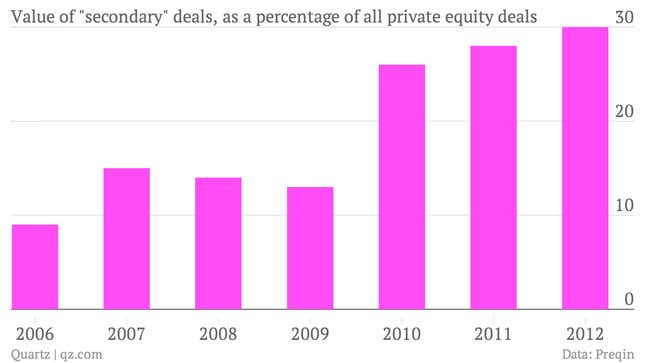A planned initial public offering of Gates Global, a Denver-based auto parts maker, has been iced in favor of a $5.5 billion buyout by Blackstone Group and TPG, the latest example of a growing preference for so-called “secondary” sales in the private equity industry, in which one buyout firm sells assets to another buyout firm.
Gates is currently owned by Canadian private equity investor Onex and the Canada Pension Plan Investment Board, which acquired the Colorado company during a $4.5 billion takeover of British auto parts maker Tomkins in 2010.
Secondary deals, which are sometimes called “merry-go-round” (America) or “pass-the-parcel” (Britain) deals, have been roundly derided as a symptom of private equity firms’ laziness and/or lack of imagination. Private equity is supposed to provide a sort of strenuous corporate housekeeping to companies that have underperformed because of poor management, then sell them off as stronger companies, all the while charging investors hefty fees for their expertise.
“Investors remain concerned about the large proportion of secondary buyouts in the market, which arguably misses the point of private equity’s role,” private bank Investec explained in a recent report (pdf, pg. 7). As the Economist noted recently: “Finding fresh corporate meat is hard…Secondary deals are easier: many of the due-diligence papers can be dusted off from the previous sale.”
Despite the disdain, these deals are growing fast. Preqin, a private equity research group, said that “secondaries” made up almost one-third of all private equity deals by value in 2012, and half of all European deals in 2013, up from 9% in 2006.

Part of the problem may be that private equity companies have too much financial firepower. As Quartz has reported, these firms are sitting on about $1 trillion in “dry powder”—money they’ve raised but have not invested, and which they will be forced to return to investors if they don’t spend by their promised deadline. As long as private equity has more cash than compelling ideas for new investments, the merry-go-round will keep spinning.
